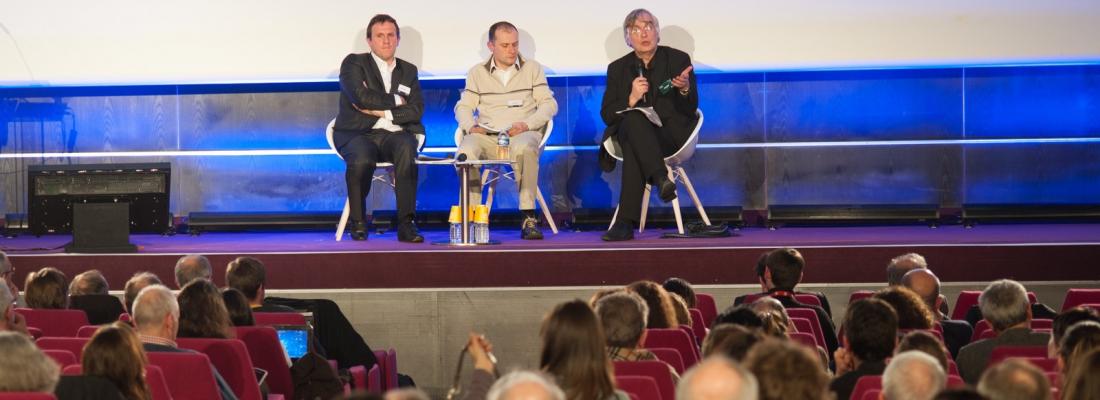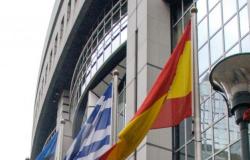Society and regional strategies Reading time 8 min
The role of research for the CAP: analyse, evaluate, recommend
Published on 08 May 2021

After initial roll-out in 1962, Europe’s Common Agricultural Policy (CAP) remained stable for 30 years before major reforms were made to it on three different occasions: in 1992, 2003 and 2013. Moreover, it is subject to evaluation every seven years. The new 2021-2027 CAP will coincide with profound changes in agricultural and food systems that face high stakes in terms of climate change, biodiversity and managing resources.
[For English subtitles, see parameters]
INRAE’s “Operation CAP”
In 2017, INRAE launched “Operation CAP” as a way to fulfil its role of advising public policy makers. The initiative brings together economists who have specialised in CAP for many years, but also researchers from other fields such as agronomy, ecology and animal science. Their work has allowed the Institute to take stock of knowledge, draw useful lessons for public policy makers, initiate dialogue with stakeholders, and determine what research needs to be done.
In concrete terms, Operation CAP has meant the formation of a long-term working group and several steps within the framework of the 2021-2027 CAP.
Support for public policy makers
- Research seminars in 2017-2018: a cycle of eight thematic seminars coordinated by Cécile Détang-Dessendre and Hervé Guyomard, bringing together European researchers and members of the French Ministry of Agriculture and Food. Themes touched on include: the environment, climate change, risks, Brexit, animal farming, food and nutrition, rural development, and EC proposals made in June 2018 for the future CAP.
- Joint report from INRAE and Wageningen University and Research (WUR) on the role of CAP in innovation (Détang-Dessendre C., Geerling-Eiff F., Guyomard H., Krijn, P., 2018, EU Agriculture and Innovation: What role for the CAP? INRA and WUR, 32 pp).
- Study for the European Parliament published in November 2020: coordinated by Hervé Guyomard and Jean-Christophe Bureau, this study proposes a set of recommendations for the future CAP, in relation to the ambitious goals of the Green Pact for Europe proposed by the European Commission starting in late 2019. It brings together 10 co-authors from INRAE and AgroParisTech.
- Support for the Ministry of Agriculture and Food in developing the next CAP: participation in consulting bodies and working groups, more in-depth studies of some dimensions (eco-schemes, agro-environmental and climatic measures, etc.).
- Examinations in the European Parliament and French Parliament and Senate
- Presentation of studies on several occasions before different audiences in France [the High Council for Food, Agriculture and Rural Areas (CGAAER), the French Society of Rural Economics (SFER) Crédit Agricole, etc.] and in Europe (Hungary, Spain, the Netherlands, Joint Research Service (JRC) of the European Commission, etc.)
- Carrying out simulations of how sensitive French farm revenues are to different scenarios of redistributing CAP funding.
- Organisation, at end-2020, as part of a collective effort of several member states, of a French seminar on CAP’s role when it comes to protecting and restoring biodiversity (full progress report to European Commission on May 19, 2021).
Direct line to players
- A collective work published in 2020: “What common agricultural policy for tomorrow?”, as a follow-up of the seminars. This work, coordinated by Cécile Détang-Dessendre and Hervé Guyomard, brings together 27 co-authors from INRAE, agronomic schools and Wageningen University and Research. Some of the authors are economists, animal scientists, agronomists, ecologists and geneticists. The work presents an outline for an ambitious CAP, designed to ease through the necessary agro-ecological transition of European agricultural systems. Read the article (in French). An updated and complete version in English forthcoming.
- Scientific support for a public debate organised in France in 2020. This debate is the first to involve ordinary citizens in the thinking process.
- The organisation of webinars open to the public:
- Webinar “CAP: Green Pact and Animal Farming” 16 September 2020
- Webinar “What Common Agricultural Policy for tomorrow?” 14 December 2020
- Webinar “Agroecological transition: what economic tools in CAP to support farmers?” 4 February 2021 - Writing of articles for skills and knowledge transfer and popularisation. For example:
- Innovations Agronomiques, volume 83, April 2021
- Pour magazine

The European Green Deal has set out ambitious 2030 climate and environmental targets for the European economy, particularly its agricultural sector. A team of INRAE and AgroParisTech researchers carried out a study on how the CAP could help achieve those objectives.
